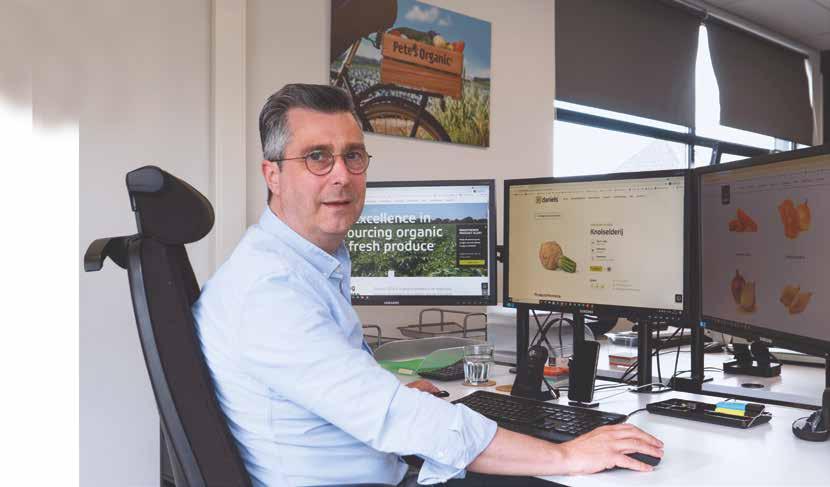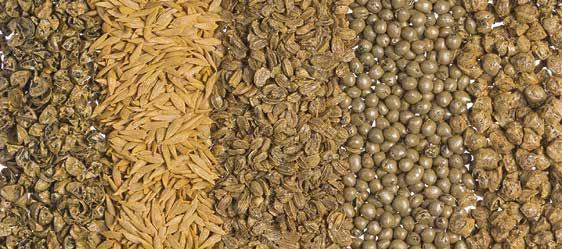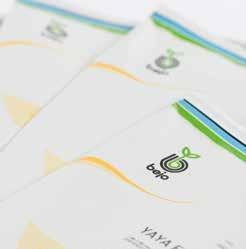
5 minute read
CLOSED PLATFORM MATCHES EXCESS SUPPLY WITH SPOT DEMAND
CLOSED PLATFORM MATCHES EXCESS SUPPLY DANIELS OFP B.V. ONTWIKKELT SOURCING-PLATFORM ALS AANVULLENDE SERVICE WITH SPOT DEMAND
THE INTERNET AND SOCIAL MEDIA AFFORD OPPORTUNITIES FOR BRINGING TOGETHER BUYERS AND SELLERS. PETER DANIËLS IS TAKING ADVANTAGE OF THAT TO PROVIDE AN EXTRA SERVICE ALONGSIDE HIS SOURCING BUSINESS. GROWERS WITH SURPLUSES, MEET BUYERS WITH SUPPLY GAPS.
Peter Daniëls has been active in the organic and conventional vegetable market for more than 20 years. For the past 11, he’s been running his own company, Daniels Organic Fresh Produce (Daniels OFP B.V.). From his office in the Dutch town of Etten-Leur, he handles sourcing for packing stations. His customers provide fresh produce to supermarkets. Most are located in Germany, France and the United Kingdom.
“Our sourcing isn’t buying and selling, it’s providing a service,” Daniels emphasizes. “We work on behalf of our clients. They’re the ones buying, usually on a year-round programm. We find the suppliers and take care of the whole process – planning, loading and transport, all the way through to administrative processing.”
His main business is in onions and carrots. He also handles vegetables such as potatoes, parsnips, parsley root, pumpkins and red beets. During the season he does much of his sourcing in the Netherlands. To accommodate year-round schedules, he turns to other countries, such as Spain for carrots and Egypt for onions.
A solution for surpluses
As someone who eases clients’ worries by arranging a steady stream of product, Daniëls has built up a large network of suppliers and buyers. As the centre of that network, he often receives special requests. Sometimes a grower needs a buyer for excess production above what
“Our sourcing isn’t buying and selling, it’s providing a service.”
Peter Daniëls
Peter Daniëls
they’re contracted for. Or they might have a lot with a different size. And once in a while a buyer requires an extra delivery because of an unexpected demand peak or a supply gap. All this inspired Daniëls to develop the online Daniels Sourcing Platform. “The usual solution would be to ask around,” he says. “But you can’t just ring up quickly every packing station or grower. With an online platform, you can let your whole network know about a batch or request in one go.”
An Extranet for customers and suppliers
The platform was built as an extension of Daniëls’s Extranet, which he uses to share documents and data with regular customers and suppliers. In August 2020, after a year of development and testing, the Daniels Sourcing Platform was ready. So how does it work for growers? “They can post an offer,” Daniëls says. “First, a product alert goes out to a fixed group of users. That’s a message with a link to detailed information on quality, size, certification, and so on. Buyers can respond directly. If there’s no response, the offer goes online and can be seen by everyone on the platform. We can draw more attention by posting the offer on social media with a link to the platform.”
No names, no prices
The Daniels Sourcing Platform isn’t an open marketplace, its founder emphasizes. “We bring together supply and demand. We don’t post prices, and sellers and buyers stay anonymous until we have a deal.” Anonymity protects users’ commercial security. Detailed, reliable information about products is needed, however. “A buyer wants to be able to see at a glance: that’s suitable for me, or that’s not suitable for me. A packing station will only buy if it’s clear what the quality is, when the product is available, and how it can be delivered.”
Daniëls adds, “As a supplier, you want to avoid a batch being refused because it doesn’t meet expectations. Certainly in the UK, post-Brexit, that’s a challenge.” He assists suppliers in providing the necessary information. For example, standard quality reports and instructions for product self assessment are available on the platform.
Easy access
Providing all these details appears to be a barrier for some growers. Daniëls invites them to register anyway. “The more people who sign up, the better it works. You only have to say what you grow and what products you could provide. And you’ll see requests come up. If someone’s looking for something in particular and you’re able to provide it, you can respond.”
Sourcing for packing stations remains Daniëls OFP’s core business; the platform is an extra service. “Online supply and demand will never replace personal relationships in sourcing,” he says. “I see this as an extra service for our contacts. Computerization and digitization are a trend that’s interesting for growers. The platform lets them explore these new opportunities in an accessible way.”



Exploring nature never stops
IMPROVED COATING AND NEW COLOUR FOR ORGANIC SEED
In 2018, Bejo introduced the new sustainable coating. In September 2020, both the organic seed coating and the non-chemically treated seed coating have transitioned to the new sustainable coating recipe. This new coating has been extensively tested in close collaboration with suppliers to achieve the correct results and to deliver the desired Bejo quality. The new coating is approved by the organic certification bodies.
The advantage of seed coating in general is that it ensures a smoother seed surface and less dust development from the seed, resulting in improved sowability.
NEW SUSTAINABLE COATING:
X Made of natural materials X Decomposes completely X Improved preservation of seed vitality X Significant drying time reduction X Less energy consumption, less environmental impact
NEW COLOUR:
X Organic seed coating will become yellowish X Non-chemically treated seed coating remains white or raw (or for some countries: gets white colour) X Visual distinction between organic and non-chemically treated seed
The new yellowish organic coating reacts slightly differently to different crops:

X Onion X Lettuce X Carrot X Cabbage X Beet X Celery
During the phaseout period, customers may receive organic seed with a white or yellowish coating until December 2022.










